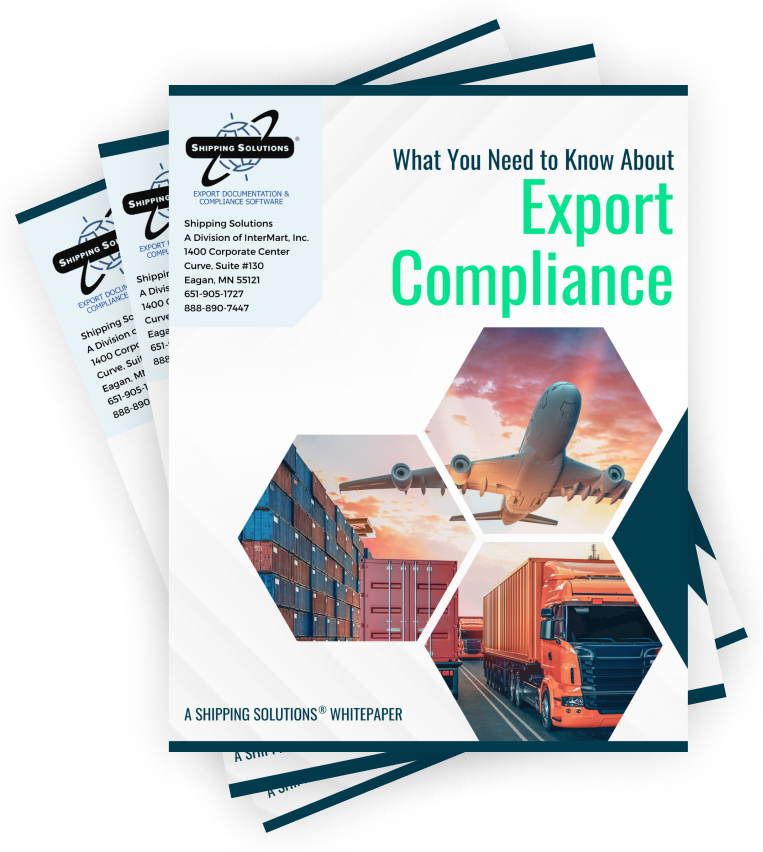The International Trade Blog Export Compliance
How to Respond to a Denied Party Screening Match
On: February 27, 2023 | By:  David Noah |
6 min. read
David Noah |
6 min. read
 It's illegal to export to someone who appears on any of the government's denied party lists, also known as restricted party lists. And it's not just your customers. It's illegal to include any denied parties in any part of your transactions.
It's illegal to export to someone who appears on any of the government's denied party lists, also known as restricted party lists. And it's not just your customers. It's illegal to include any denied parties in any part of your transactions.
The best way to avoid doing this—and the only way to know for sure—is to run screenings for every single export that check all the parties against each denied party list.
Denied Party Screening Options
You have two options when it comes to denied party screening services:
1. Use the government's Consolidated Screening List.
The Consolidated Screening List (CSL) is a list of parties for which the United States government maintains restrictions on certain exports, re-exports or transfers of items. It currently includes a dozen of the largest denied party lists published by a variety of agencies. And the price is right; there is no charge for using the CSL.
Keep in mind that while the CSL includes 11 lists of bad guys, it does not include names from all 100-plus government lists. And navigating the support material about potential matches is often difficult since it is presented as text without formatting. While the service is free, you get what you pay for.
Also, be aware that the last time there was a U.S. government shutdown, the CSL became unavailable to exporters. Despite last minute agreements to fund the government, future shutdowns remain a possibility.
2. Use a denied party screening software.
This option is a step up from the CSL, because the software not only checks the name, but also address and other information of the parties. It also employs algorithms that check variations on spellings. It maintains an audit trail of your screenings, so you have proof that you are doing your due diligence for all your exports. And it provides more detailed results, as you will see below.
The Shipping Solutions Restricted Party Screening (RPS) Software screens against names and addresses pulled from more than 200 different U.S. government-published denied party lists as well as lists published by other countries and international organizations such as the United Nations.
In addition, the Shipping Solutions Professional export documentation and compliance software includes the RPS Software, so you can check all the required government lists by just clicking a button, and the denied party screening tool checks all the parties in your export transaction, including the ultimate consignee, bill-to party, intermediate consignee, freight forwarder and notify party.
Dealing with Denied Party Screening Matches
When you do your screenings, hopefully you never get a match against any of the lists, and you're good to proceed with your export (as long as you comply with all your other export compliance responsibilities, of course).
But what happens when you get a match or a potential match for one of the export parties? You need to know what to do.
1. Follow Your Company's Export Compliance Program
Hopefully your company has a plan in place for how to deal with most issues that may come up with exporting, including matches to denied party screenings. It should include who to notify, what procedures should be followed to review the match, and how to document your decisions.
More than just having a plan, people should also be trained to follow it—an Export Compliance Program (ECP) isn’t worth the paper it’s printed on unless it's being used. If you don’t have an ECP, this is the perfect time to create one.
2. Hold the Order or Shipment for Further Review
If you get a potential match from denied party screening software, hold the order/shipment for further review and a final determination. Good software will provide you with a lot of information your company can use to make a determination.
.gif?width=560&height=300&name=Denied%20Party%20Screening%20Results%20560%20(1).gif)
A. Review the match score.
The Shipping Solutions RPS Software displays all potential matches that score 60% or higher based on our search algorithm. A 100% match is an exact match; a 60% match is a much less likely match, and you may need to do some research to determine whether or not this party actually appears on one of the denied party lists.
The sample results pictured above show that the first three results are exact matches based on the organization name, "Internet Research Agency." Matches can also be made on a person's name or the address. They all have match scores of 100%. The first two matches are from a U.S. Specially Designated Nationals (SDN) list, while the third match is from the U.K. Sanctions List. If the screenshot extended further down the page, you'd see 73 potential matches, ranging from 100% matches down to 66% matches, and they would include matches from several different U.S. lists, as well as lists from other countries.
One of the details in your ECP should be at what level you deem a potential match worth investigating. It may be 60% or higher; it may be 80% or higher. This is a business decision based on your company’s risk tolerance.
B. Review the details.
It's sometimes fairly obvious whether or not someone is a match. In addition to the match score, the results from your screenings include which country or international agency has published the denied party lists, since the Shipping Solutions software check lists from other countries and international organizations.
This is helpful if you’re exporting to countries in which your company has a physical presence and therefore may be governed by their regulations as well. If your exports are not governed by other countries’ regulations, you may choose to ignore them.
C. Review the official notice for more information about the screening.
The Shipping Solutions RPS Software results include the official notice that a person or individual was added to a list, which for U.S. lists, is usually found in the Federal Register or an Office of Foreign Asset Control (OFAC) Bulletin.
In the example above, our screened contact was published in the OFAC Bulletin on March 15, 2018. As you can also see, this Restricted Party List (RPL) is maintained by the Department of Treasury, and the exact list name is "SDN List - Executive Order Taking Additional Steps against Malicious Cyber-Enabled Activities.” If you were to search this list, you’ll see that it relates to sanctions against "persons responsible for or complicit in, or to have engaged in, certain malicious cyber-enabled activities."
D. If you still question a potential match, contact the listing agency for guidance.
If your company is still unsure whether or not you should be doing business with the person or organization identified in your denied party screening, you should contact the appropriate agency for guidance. Agencies include:
- BIS End-User Review Committee
- DDTC Response Team
- OFAC Sanctions Programs and Information
- Other agencies as appropriate
3. Document All Your Compliance Efforts
You should maintain records of every denied party screening that you run, including the results you received and any decisions you made based on those results. In Shipping Solutions Professional, for example, the software displays whether a screening was run for a shipment, whether a potential match was found, and the review status for that shipment including, approved, denied or it's currently being reviewed.

If you do get a potential match and decide to move forward with exporting to that party, document how you came to the decision to ship. For example, you reached out to BIS and were notified that it was OK to proceed.
By thoroughly documenting every step, you show your willingness to comply with export regulations, and attempting to comply is a strong mitigating factor against penalties should you face compliance issues.
Keep your records for at least five years, and regularly audit your results to make sure the right decisions are being made and the procedures outlined in your ECP are being followed. Here’s a checklist you can follow to audit your company's export procedures.
Your Best Bet
The easiest and most efficient way to run denied party screenings, document your results, and keep records is to use Shipping Solutions software. Let us show you how Shipping Solutions software can save you time, money and plenty of frustration with your export compliance tasks.
Like what you read? Subscribe today to the International Trade Blog to get the latest news and tips for exporters and importers delivered to your inbox.
This article was first published in December 2018 and has been updated to include current information, links and formatting.

About the Author: David Noah
As president of Shipping Solutions, I've helped thousands of exporters more efficiently create accurate export documents and stay compliant with import-export regulations. Our Shipping Solutions software eliminates redundant data entry, which allows you to create your export paperwork up to five-times faster than using templates and reduces the chances of making the types of errors that could slow down your shipments and make it more difficult to get paid. I frequently write and speak on export documentation, regulations and compliance issues.


